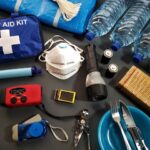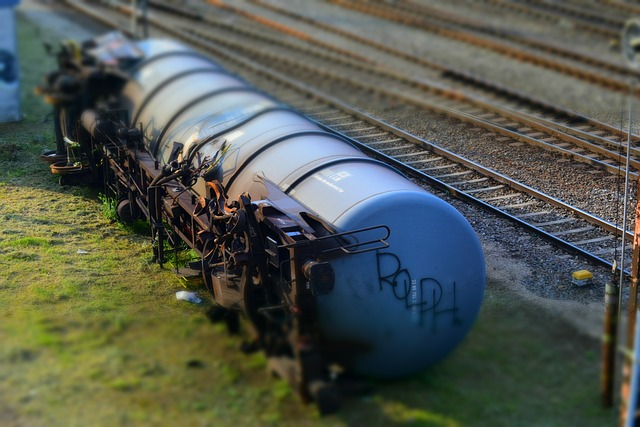
Problem: Bank Collapse
Scope: Personal, Local, Regional, National
Impact: Minor, Major (Depending on severity)
Dangers (not limited to): Run on banks, Limited/No access to Cash, Job Loss, Social Unrest, Violent Crime, Market Volatility
Preps (not limited to): Diversify Deposits, Keep Cash on hand, Reduce Debts, Diversify Income
Causes of a Bank Collapse
A bank can fail due to a variety of reasons, but the most common one is insolvency. Insolvency occurs when a bank’s liabilities exceed its assets, meaning the bank owes more than it has. This can be caused by a variety of factors, including bad loans, declining asset values, and poor management decisions.
Another reason for a bank to fail is liquidity problems. This means that the bank does not have enough cash or liquid assets to meet its obligations as they become due. This can occur when there is a sudden and unexpected demand for withdrawals from depositors, or when a bank’s investments become illiquid and cannot be sold quickly.
A bank can also fail due to fraud or mismanagement. This occurs when bank officials engage in illegal or unethical behavior, such as embezzlement, insider trading, or risky investments.
When a bank fails, it can have serious consequences for the economy and the community.
The Dangers of a Banking Collapse
A banking collapse in the U.S. would have significant consequences for the economy and the daily lives of Americans. Here are some potential outcomes that could happen if a banking collapse occurred in the U.S:
- Run on the Banks: If news of bank closures hits the streets you can expect long lines at the ATM and bank counter. People will rush to their bank to get out as much cash as possible. If they fear their debit card will no longer work, they will need cash for everyday transactions.
- Economic downturn: A banking collapse would likely cause a severe economic downturn as people lose confidence in the banking system. This would lead to a decrease in lending and investment, which could trigger a recession.
- Job losses: If the banks were to collapse, many people would lose their jobs as banks and financial institutions start to fail. Companies that rely on loans to operate would struggle to stay afloat, leading to widespread layoffs. Your bank may not fail, but if your employer’s bank fails, they may lose access to the funds that your next paycheck was going to come from.
- Loss of savings: People who have money in the bank may lose their savings if the bank fails. Historically, the Federal Deposit Insurance Corporation (FDIC) insures deposits up to $250,000 per account, but if the bank fails, it may take some time to get access to the insured funds.
- Market volatility: A banking collapse would cause stock market volatility as investors react to the news. This could lead to widespread panic selling, which could further depress the stock market.
- Social unrest: In extreme cases, a banking collapse could lead to social unrest. People who have lost their savings and jobs may take to the streets to protest and demand action from the government.
- Violent Crime: If people are unable to conduct lawful business to buy fuel and groceries, you should expect to see a dramatic rise in violent crime. Even law-abiding citizens will turn to theft if it meant feeding their children. People will steal food from grocery stores, fuel from gas stations, supplies from hardware stores and big box stores. When this runs out, or if your house is an easier target, they will eventually turn to you and steal from you. This could quickly turn deadly.

How to Prepare for a Banking Collapse
- Diversify Your Deposits: Instead of putting all your eggs in one basket, consider spreading your deposits across different banks or financial institutions. This can reduce your risk if one bank fails.
- Keep Some Cash on Hand: In a banking collapse scenario, it may be difficult to access your funds immediately. Keeping some cash on hand can help you cover your expenses in the short term. Be sure to purchase a safe and consider hiding the cash in multiple places around your house to safeguard against theft.
- Have Alternative Sources of Income: This is critically important! Diversify your income! If you rely on your job for income, consider developing alternative sources of income, such as starting a side business or freelancing. This can help you stay afloat if you lose your job during a financial crisis. For more ideas on side-hustles you can start to diversify your income, read our article here.
- Invest in Tangible Assets: Consider investing in tangible assets, such as real estate or precious metals like gold and silver, which can retain their value even during a financial crisis. Don’t invest in Gold or silver sticks or mining companies, invest in the physical bullion.
- Keep Your Debt Under Control: High levels of debt can be a significant burden during a financial crisis. Try to pay off your debts or keep them under control so that you can maintain your financial stability during a banking collapse.
- Stay Informed: Keep up to date with the latest news and developments in the banking industry and the broader economy. This can help you make informed decisions about your finances and take timely action if necessary.
In conclusion, a banking collapse can have a severe impact on your finances, but there are steps you can take to prepare for it. By diversifying your deposits, keeping some cash on hand, having alternative sources of income, investing in tangible assets, keeping your debt under control, and staying informed, you can protect yourself and your finances in the event of a banking collapse.
It is our mission to educate, equip, and empower everyday ordinary civilians to understand, prepare for, and survive any emergency they face. We cannot rely on the government to take care of us. We must take it upon ourselves to provide for and protect ourselves and our families.










